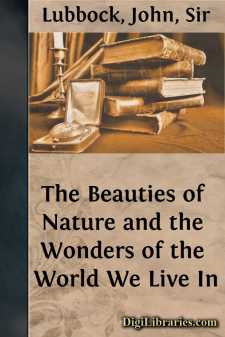Categories
- Antiques & Collectibles 13
- Architecture 36
- Art 48
- Bibles 22
- Biography & Autobiography 813
- Body, Mind & Spirit 142
- Business & Economics 28
- Children's Books 15
- Children's Fiction 12
- Computers 4
- Cooking 94
- Crafts & Hobbies 4
- Drama 346
- Education 46
- Family & Relationships 57
- Fiction 11829
- Games 19
- Gardening 17
- Health & Fitness 34
- History 1377
- House & Home 1
- Humor 147
- Juvenile Fiction 1873
- Juvenile Nonfiction 202
- Language Arts & Disciplines 88
- Law 16
- Literary Collections 686
- Literary Criticism 179
- Mathematics 13
- Medical 41
- Music 40
- Nature 179
- Non-Classifiable 1768
- Performing Arts 7
- Periodicals 1453
- Philosophy 64
- Photography 2
- Poetry 896
- Political Science 203
- Psychology 42
- Reference 154
- Religion 513
- Science 126
- Self-Help 84
- Social Science 81
- Sports & Recreation 34
- Study Aids 3
- Technology & Engineering 59
- Transportation 23
- Travel 463
- True Crime 29
John Lubbock
John Lubbock (1834–1913) was a British banker, politician, and polymath known for his contributions to archaeology, biology, and social reform. He wrote several influential books, including "Prehistoric Times" (1865), which explored human prehistory, and "The Pleasures of Life" (1887), a philosophical reflection on the importance of balance and happiness in daily living. Lubbock was a key advocate for the preservation of ancient monuments and played a significant role in the passing of the Ancient Monuments Protection Act of 1882. Additionally, he introduced the Bank Holidays Act in 1871, which established public holidays in the UK.
Author's Books:
Sort by:
by:
John Lubbock
INTRODUCTION The world we live in is a fairyland of exquisite beauty, our very existence is a miracle in itself, and yet few of us enjoy as we might, and none as yet appreciate fully, the beauties and wonders which surround us. The greatest traveller cannot hope even in a long life to visit more than a very small part of our earth, and even of that which is under our very eyes how little we see! What...
more...
by:
John Lubbock
CHAPTER I. THE DUTY OF HAPPINESS. "If a man is unhappy, this must be his own fault; for God made all men to be happy."—EPICTETUS. Life is a great gift, and as we reach years of discretion, we most of us naturally ask ourselves what should be the main object of our existence. Even those who do not accept "the greatest good of the greatest number" as an absolute rule,...
more...



